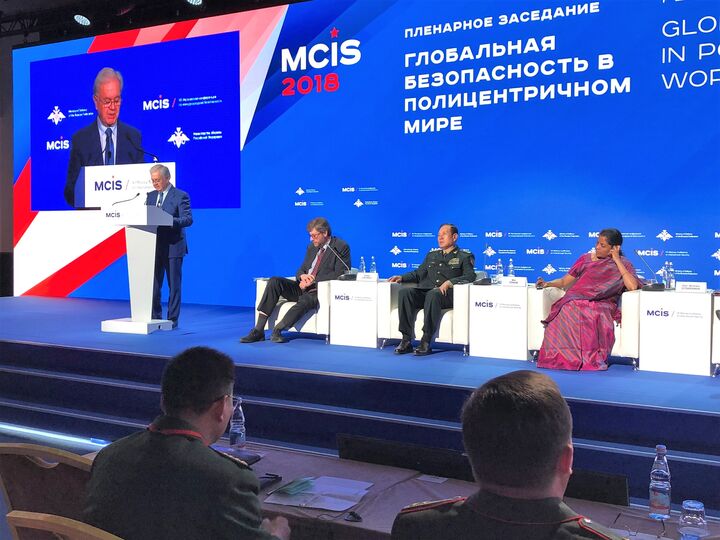On 4 April 2018, the 7th Moscow Conference on International Security (MCIS) opened in the Russian capital with Secretary-General of the Shanghai Cooperation Organisation (SCO) Rashid Alimov attending.
In his speech at a plenary session devoted to global security in a polycentric world, the SCO Secretary-General underscored the special significance of MCIS. "The world is living through a period of searching for qualitatively new development ways. The irreversible process of forming a multi-polar geopolitical landscape continues. Instability and uncertainty persist in global development. Attempts are being made to conserve the present picture of the world and its existential principles that have outlived themselves. The situation in the global economy and finance remains unstable as well as sometimes unpredictable," Mr Alimov said.
"Today, the SCO is the world's largest regional organisation seeking to play an active role in the formation of a fairer polycentric model of world order that would meet the interests of each and every country. The SCO's constructive contribution to building an effective global and regional security architecture and cooperation and forming a human community with a shared future will increase from year to year."
Mr Alimov pointed out that terrorism and radical extremism remain the most serious threats to security. "Particularly in areas bordering on the zone of responsibility of the SCO: they spread violence and extremism, humiliate human dignity and infringe on the most precious value — human life. Flags and masks will not help international terrorism conceal its true bloody face. It has no justification. The SCO member states will continue waging an irreconcilable struggle against this evil, improve the practice of holding joint anti-terror exercises, including the Peace Mission, on a regular basis and expand international cooperation both at a political level and through special services," the SCO Secretary-General said.
The 7th MCIS brought together more than 850 delegates from 95 countries, including 30 ministers of defence, 15 chiefs of general staffs, deputy defence ministers, the heads of international organisations, as well as high-ranking diplomats and experts.
The aim of the forum is to bolster cooperation between the military agencies of various countries and search for common approaches to new challenges and threats.
